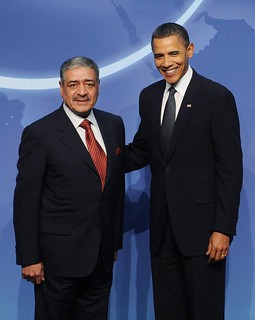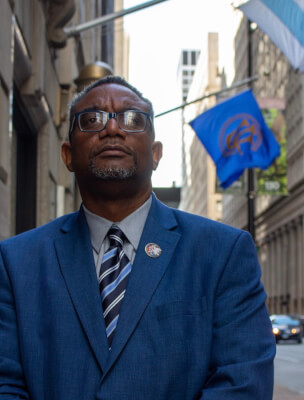Saudi King Abdullah rearranges the line of Succession to the Saudi throne
By Ali Younes

Prince Muqrin Bin Abdelaziz is set as the future King of Saudi Arabia, and the last one of his generation
In an unprecedented move King Abdullah of Saudi Arabia appointed Prince Muqrin Bin Abdelaziz Al Saud, 68, as the Second Deputy Prime Minister and the Deputy Crown Prince thus making him the second in line to the throne after his brother Crown Prince Prince Salman Bin Abdel Aziz. Regional analysts argue that this move is intended to prevent the current Crown Prince Salman should he become King, from appointing Prince Ahmad , 72 as his Crown Prince instead of Prince Muqrin. It is unclear, however, as to why the King chose to appoint a Crown Prince for the future King, when traditionally it was left for the future King to select his own crown prince.
King Abdullah who is also the Prime Minister is 90 year old and reportedly in frail health is eager to make the line of succession clear in the event that he or his brother, Salman, 77, were to become unable to perform their duties due to health reasons or death. The appointed of Prince Muqrin who is the 34th and the youngest surviving son of the Kingdom’s founder King Abdel Aziz Al Saud,( Ibn Saud) from his 18th wife will in effect make him the de-facto King and the most powerful man in Saudi Arabia. Prince Muqrin a former head of the Saudi intelligence services is viewed as “ traditionalist “ which means that he might not seek reforms especially in the area of civil rights, gender equality , education and in loosening the grip of Saudi religious police on Saudi public life. Saudi newspapers reported last week that Prince Muqrin visited Grand Mufti Sheikh Abdul Aziz Al-Sheikh at a Riyadh hospital and reiterated Saudi Arabia’s commitment to Shariah.
“I pledge to Allah first, then to Custodian of the Two Holy Mosques King Abdullah, Crown Prince Salman, and Saudi people that Saudi Arabia will continue to uphold Shariah and that the Qur’an and Sunnah will remain as its constitution,” Prince Muqrin said. Unlike other Arab or Muslim countries, Saudi Arabia has no modern or secular constitution and considers the Muslim’s holy book , the Quran as its constitution.

The significance of this appointment moreover, is that it might be the last time that a son of the founder is made king since most of the surviving sons are ailing and in old age. This, therefore, will set the stage for the second generation and senior princes the grandsons of the founder. The list includes Prince Bander Bin Sultan who was for decades the Saudi ambassador to the United States, and Khaled Bin Sultan who is deputy defense Minister. But the one distinct and key appointment the king made was to ensure that his own son, Mutaib, was made be the leader of the National Guard and is speculated that he will become Second Deputy Crown Prince when Prince Muqrin becomes the Crown Prince after the passing of King Abdullah and Prince Salman assumes the throne. Another significant change is the appointment of second generation senior prince Mohammad Bin Nayef to the Interior Ministry which will no doubt put him on the path to the throne in the future. The National Guard is 260,000 member force which is better trained and equipped than the regular Saudi army and is tasked to protect the Saudi Royal family.
Prince Muqrin will in effect become a transitional king who will bridge the old generation of the sons of Ibn Saud and their sons who will deal with different Saudi Arabia and different set of threats when their time comes to rotate on the throne. Although the current succession system goes from bother to brother within the sons of Ibn Saud, it is not clear, however, how the senior princes who constitute brothers, half brothers, cousins, second and third cousins will chose future kings in the next decade or so without igniting succession battles or threaten the stability of their country.
As for the relations with the United States It is not expected that prince Muqrin in his current post or when he becomes king will make a drastic changes in Saudi foreign policies especially with the United States. Although the US-Saudi relations have strained due to President Barack Obama’s reluctance to take more aggressive approach toward Iran and Syria, the two countries, however will remain strategically connected despite the differences of opinion on how to deal with regional threats.
Unlike previous American Republican administrations which traditionally enjoyed excellent relations with the Saudi royal family, the Democratic Obama administrations angered the Saudis for its attempts to make a deal with Iran over its nuclear program which the Saudis and other Gulf Arab States as well as Israel view as a threat to their national security and stability. In the meantime the Saudis are looking into ways to counter balance and contain the Iranian threat through regional alliances with countries like Egypt and Pakistan with or without the US approval.
Ali Younes is the Editor of the Arab Daily News, email him at: aliyounes@thearabdailynews.com and on twitter @clearali
Related articles


- Arab Americans celebrate local candidates at annual forum - February 20, 2024
- Christian College to fire professor for saying Christians and Muslims worship the same God - January 7, 2016
- Jordanianagents arrest well-known anti-ISIS salafist Sheikh’s son - December 3, 2015























